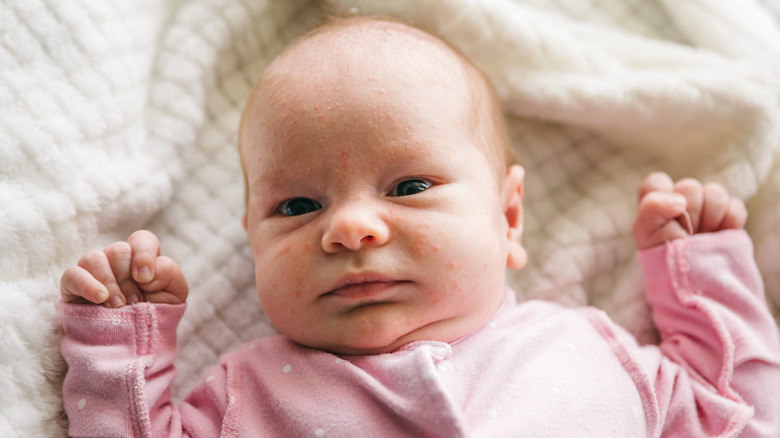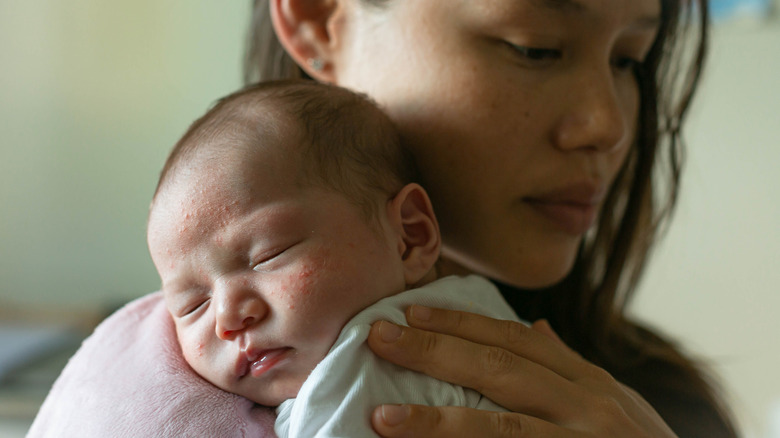The Best Way To Clear Up Your Baby's Acne
You might be surprised to see your newborn suddenly develop acne like they're a teenager — but don't be alarmed. Baby acne, which looks like small red or white bumps on the skin (via Mayo Clinic), is completely normal.
Known as neonatal acne, these breakouts tend to occur when babies are around 2 to 6 weeks old, according to the American Academy of Dermatology Association. Neonatal acne can occur on the cheeks, nose, forehead, chin, chest, and even the scalp. And it's very common — one in five newborns experience it.
While there's some debate around what causes neonatal acne, some researchers believe that it's an inflammatory response caused by a yeast called Malassezia that resides on the baby's skin, according to a 2016 review published in the Canadian Medical Association Journal. Some also think it could be due to the mother's hormones affecting the newborn during birth (via WebMD). Neonatal acne is generally nothing to worry about and will clear up on its own in a couple of weeks, though it may last months in some cases (via Healthline). In the meantime, there are some measures you can take to ensure your child's skin stays clean and healthy.
Try these at-home treatments
Here are steps you can take to treat your baby's acne, according to Healthline: First, cleanse your baby's face regularly. Babies don't need harsh detergents — even just warm water will do. Make sure you wash daily and avoid fragranced products. Another step is to avoid scrubbing the baby's skin but instead, pat to dry after washing. Scrubbing can inflame the skin even more, so be sure to wash gently. Third, don't try to pinch or pop the acne. While you may be tempted, doing so can cause irritation or even an infection. Finally, have lots of patience as your baby's skin improves. Neonatal acne is typically not painful or itchy and will clear up on its own in time.
If your baby's acne lasts beyond a few months of age, it's known as infantile acne — and it might be time to see a doctor (via WebMD). A health care professional can help determine if the skin issue could be due to something else, like infection, eczema, or rash. Professional guidance and treatment will help heal the acne and prevent scarring.


